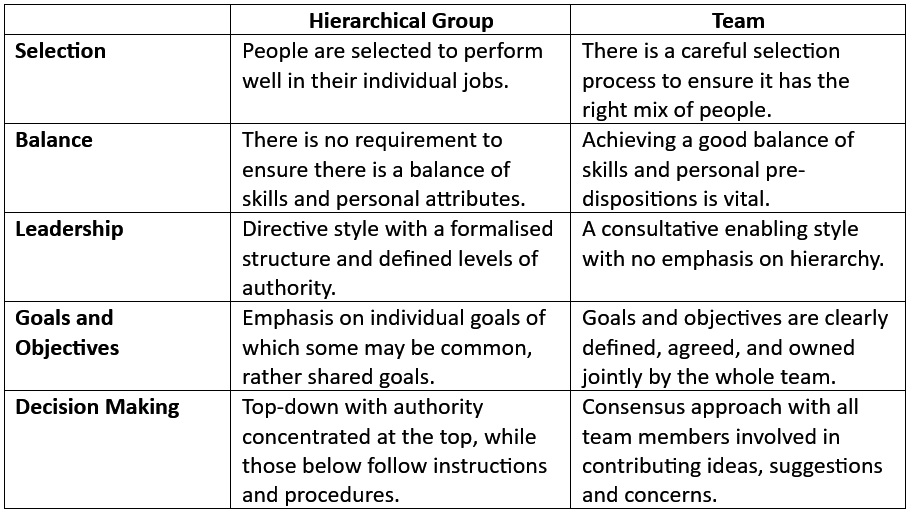The term Team is used so frequently that one might assume that it has a common meaning that has the same interpretation by everyone. Sadly, this is not the case so I would like to offer some thoughts as to what exactly a team is and how it differs from a hierarchical group.
To be perfectly honest I often find myself cringing at the mention of the word team as I feel it is not only overused, it is actually abused. I acknowledge that the word has a nice warm connotation that bestows a feeling of camaraderie and a sense of belonging and that’s nice. The issue I have is that calling a group of people a team doesn’t make them a team and certainly will not magic them into being an effective team.
Let me be clear at this point that I recognise that teams and hierarchical groups both serve legitimate but differing purposes within an organisation. What is important is that we distinguish between the two to avoid confusion and misunderstandings. With this in mind I have attempted to define each of these entities.
A Team is a collaborative group of individuals who come together to achieve a shared defined goal, solve problems, or complete projects by leveraging their unique skills, knowledge, and expertise. In a team, members work interdependently, share responsibilities and make joint decisions.
A Hierarchical Group is a structure in an organisation that is characterised by a clear chain of command and authority. In a hierarchical group, individuals have specific roles and responsibilities that are determined by their position in the hierarchy.
More important than the definitions though are the differences between how each entity operates and interacts. In the table below I have picked out just 5 of the factors that distinguish a hierarchical group from a team.

The above examples are indicative rather than exhaustive. In fact, over the last 40 years or so I have identified a list of 12 key characteristics I have found to be present in high performing teams. These are now used as a basis for the Watson Team Performance Indicator (WTPI).
Barrie Watson© 2023